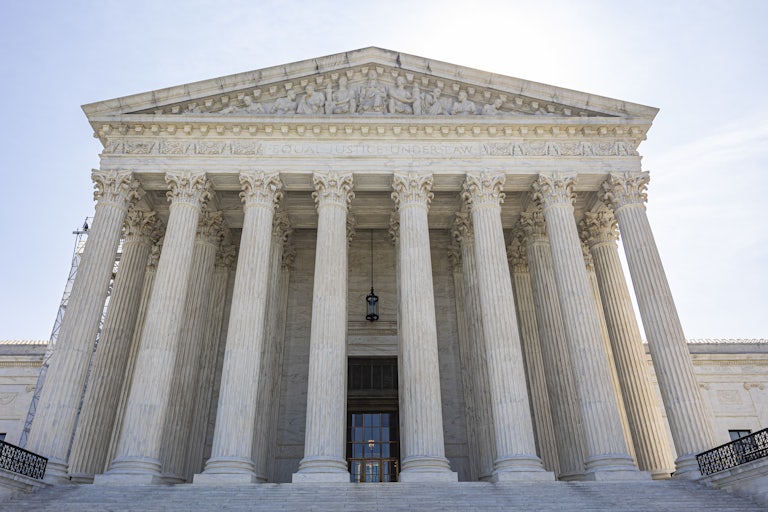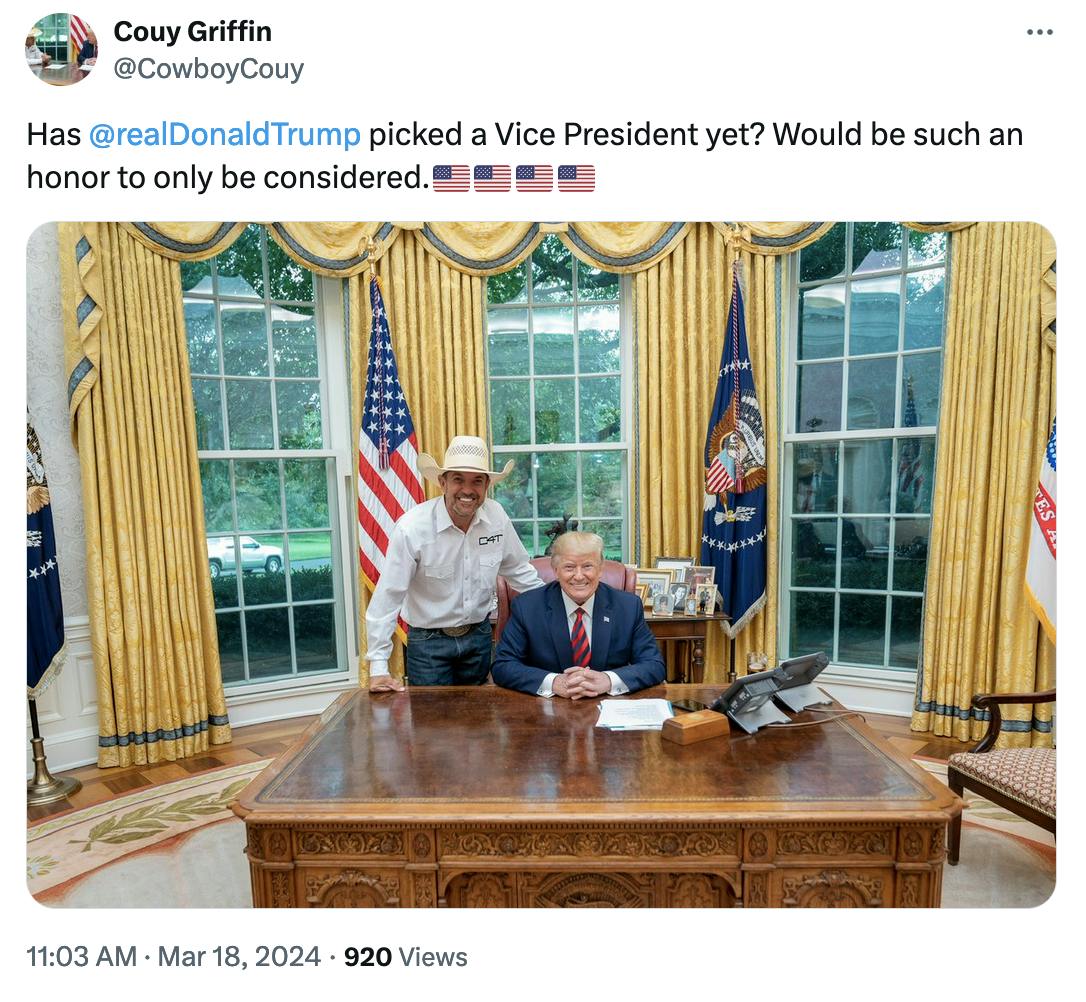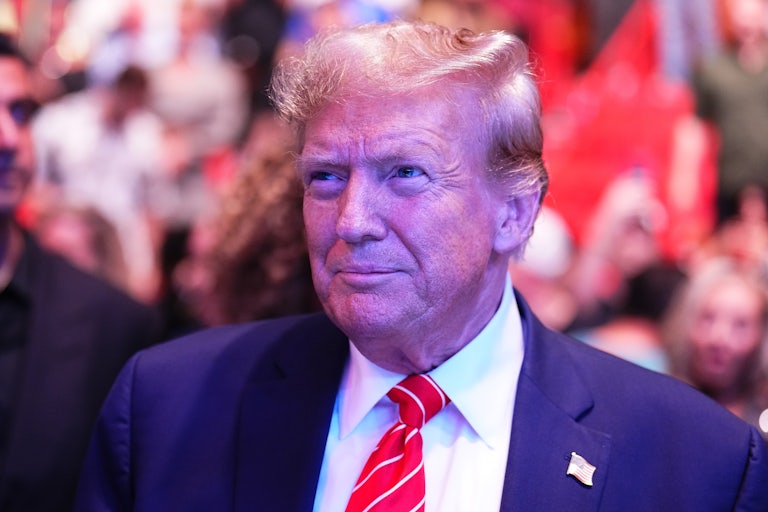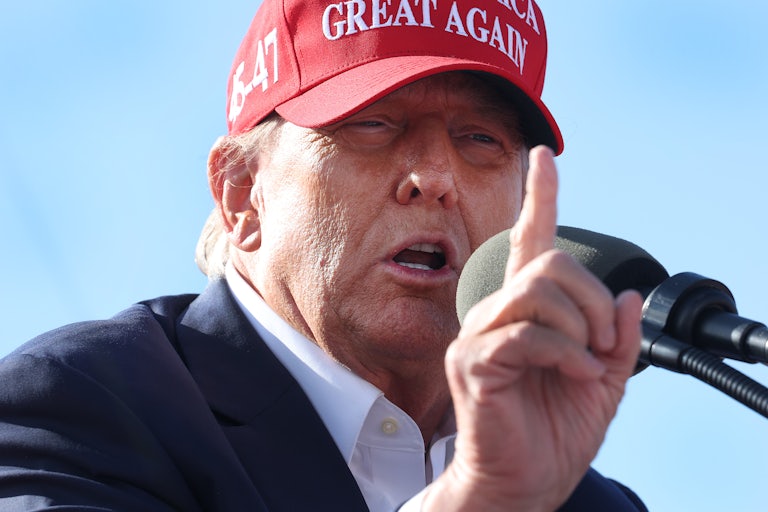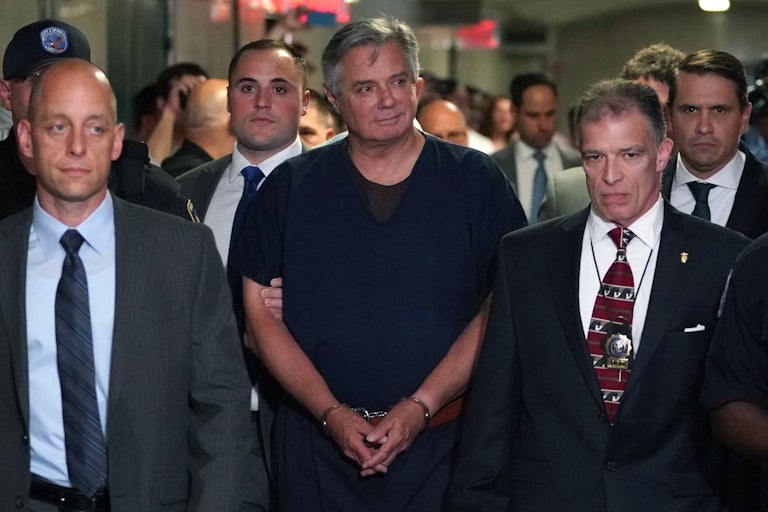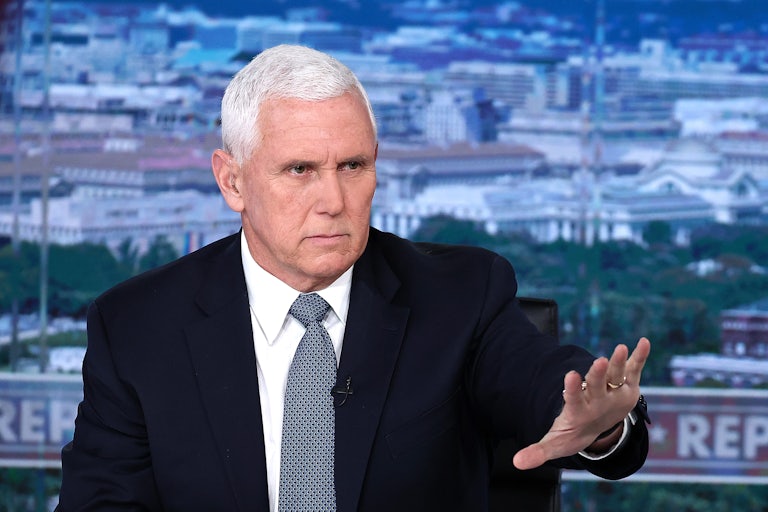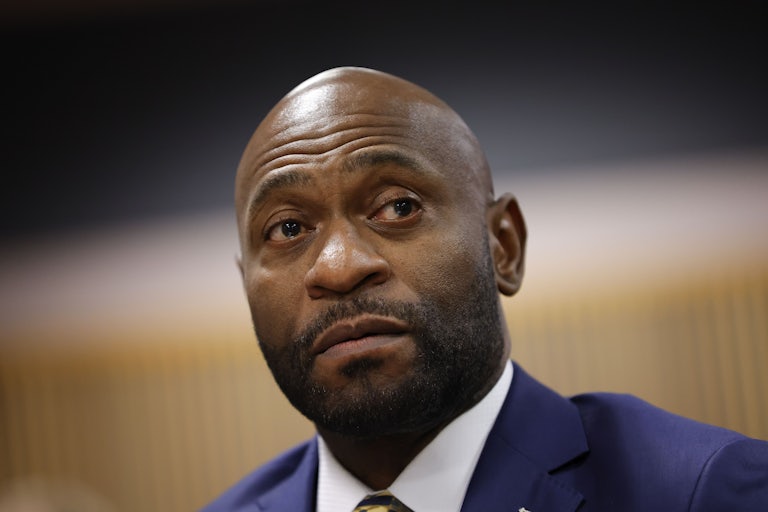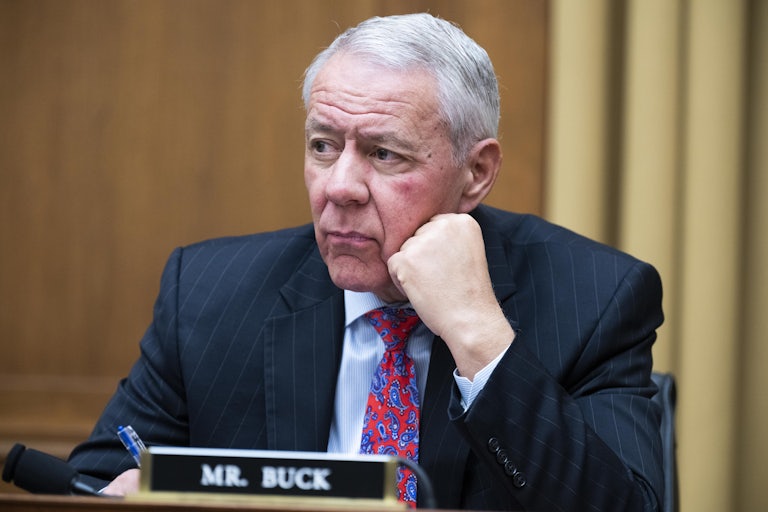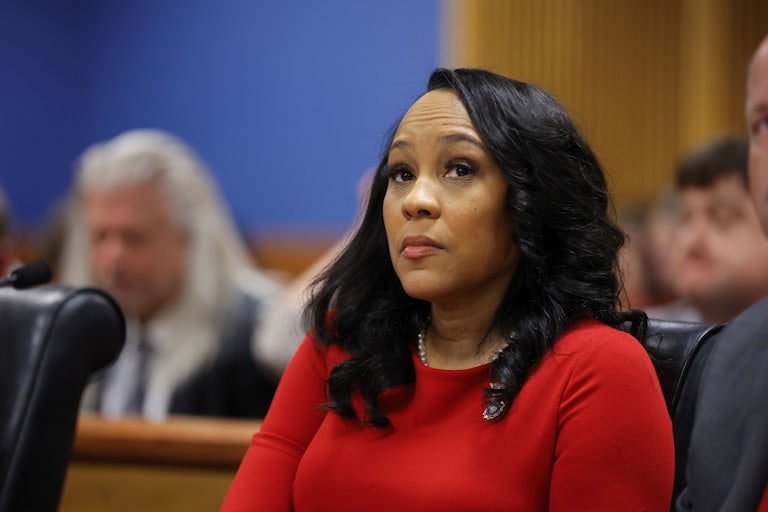Broke Donald Trump Admits He Can’t Post That Massive $464 Million Bond
Trump is having some trouble posting bond after that damning fraud trial.
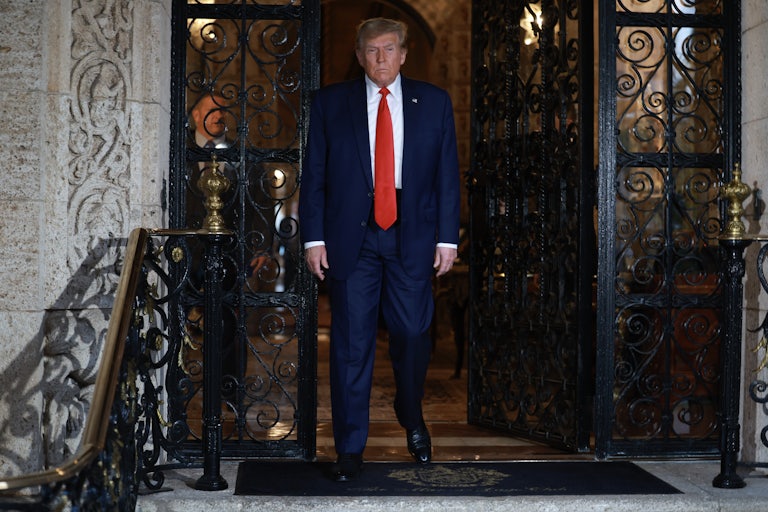
Donald Trump has finally admitted he can’t secure the bond for his New York civil fraud trial, as his lawyers filed a request Monday to delay execution of the judgment.
The former president was fined $354 million for committing real estate–related fraud in New York. With interest adding $112,000 per day, the total sum has already exceeded $467 million. Trump’s lawyers say that to obtain the bond, they would need to post collateral worth $557 million—which they say is a “practical impossibility.”
“Defendants stated their expectation that it would be ‘impossible to secure and post a complete bond,’” the Monday court filing said.
Trump’s lawyers explained they have asked about 30 different organizations to underwrite the bond. The list of companies they can ask is limited, since the bond is so large that it would require a company to have cash reserves of nearly $1 billion, according to the court documents.
“Critical among these challenges is not just the inability and reluctance of the vast majority of sureties to underwrite a bond for this unprecedented sum, but, even more significantly, the unwillingness of every surety bond provider approached by Defendants to accept real estate as collateral,” Trump’s lawyers said.
Trump’s lawyers indicated that if the judge does not grant them a stay, they intend to appeal the decision. If the appellate court does not intervene, then Trump has just one week left in the 30-day post-judgment window to pay up. New York Attorney General Letitia James has said she intends to start seizing Trump’s assets if he fails to post bond.
Unfortunately, Trump has no one to blame but himself for his current predicament. He has repeatedly bragged about how rich he is, which no doubt contributed to such a hefty judgment. By his own account, he can handle it—despite reportedly only having about $413 million in cash assets.
Trump’s real estate fraud trial also revealed that the former president was in the habit of inflating the value of his real estate assets to make himself look better when trying to secure loans. So it’s no wonder that bond providers don’t want to accept real estate as collateral. There’s no way they can be sure the property is worth the amount they underwrite for Trump’s bond.
The companies are also likely loath to subject themselves to the scrutiny that has fallen on the Chubb Corporation, the insurance group that backed Trump’s $91.6 million bond in E. Jean Carroll’s defamation lawsuit.
Chubb CEO Evan Greenberg, whom Trump appointed in 2018 to a White House advisory committee for trade policy and negotiations, had to send a letter to Chubb’s clients last week assuring them that the decision was not a political one and that the company’s assets were “fully collateralized,” or protected against failure of repayment.
Trump still owes Carroll $5 million for sexually assaulting her and defaming her a separate time. He also owes $400,000 to The New York Times, thousands of dollars for gag order violations, and $382,000 to Orbis Business Intelligence, the consulting firm owned by former British intelligence officer Christopher Steele. Trump had sued Orbis over a dossier Steele compiled in 2016 that alleged Trump and members of his inner circle had been “compromised” by Russia’s security service.
